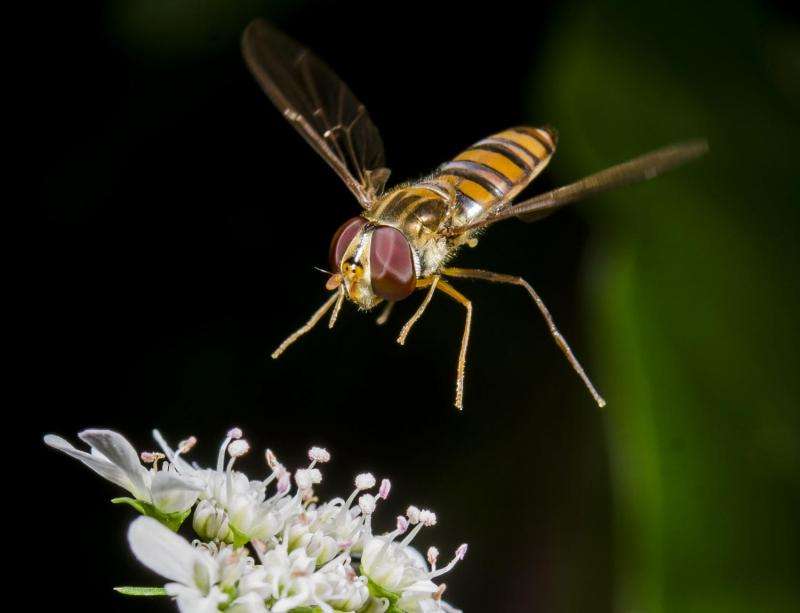Study suggests bees aren't the be all and end all for crop pollination

Farmers who used pesticides that spared bees but sacrificed killed other insects might be ignoring important sources of crop pollination, according to an Australian-led international scientific study.
University of Queensland plant ecologist Dr Margie Mayfield said many crops —including mangoes, custard apples, kiwi fruit, coffee and canola —depended on non-bee insect pollinators such as flies, butterflies, moths, beetles, wasps, ants, and thrips.
"Scientists haven't much broadly explored the role of non-bee insects in crop pollination," said Dr Mayfield, who is the Director of the Ecology Centre in UQ's School of Biological Sciences.
"The global reliance on honeybees for pollination is a risky strategy given the threats to the health of managed honeybee populations due to pests and diseases such as Varroa mites and colony collapse disorder.
"Non-bee insects are an insurance against bee population declines.
"We are trying to get the message out there to use scientific findings such as these to promote a change in agricultural practices."
Dr Mayfield said the research was led by Dr Romina Rader from the University of New England, Armidale, and involved the team of international researchers who had synthesised 39 field studies on 1739 field plant crops studies in five continents.
The researchers discovered that non-bee pollinators performed 25 to 50 per cent of the total number of flower visits.
"Although non-bees were less effective pollinators than bees per flower visit, they provided slightly more visits," Dr Rader said.
"These two factors compensated for each other, resulting in pollination services similar to bees."
Dr Rader said non-bee insect pollinators had other advantages.
"Fruit set in crops increased with non-bee insect visits, independently of bee visitation rates, indicating that non-bee insects provide a unique benefit not provided by bees.
"We also found that non-bee pollinators were less sensitive to habitat fragmentation than bees."
The study is published in the Proceedings of the National Academy of Sciences.
More information: Non-bee insects are important contributors to global crop pollination, PNAS, www.pnas.org/cgi/doi/10.1073/pnas.1517092112
Journal information: Proceedings of the National Academy of Sciences
Provided by University of Queensland



















